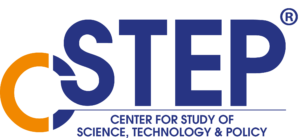Our Work
AT A GLANCE



PROJECTS
Engaging with Farmer Federations to Adapt Systems ToC
Collectives for Integrated Livelihood Initiatives (CInI), TATA Trusts
DESTA is working with CInI to solicit inputs from farmer federations across two geographies on how climate resilience and environmental sustainability can be enhanced through CInI’s Lakhpati Kisan Program. This is part of a longer-term engagement with CInI to bring a systems lens to their programme’s Theory of Change, which is now expanding its boundary of concern to endogenize climate and environmental aspects while improving farmer incomes.
Synthesizing research on Philanthropy Landscape
ISDM Center for Social Justice and Philanthropy (CSJP)
Programme Design using Systems Thinking
Raintree Foundation
Modeling Decentralized Renewable Energy (DRE) Systems
SELCO Foundation
Developing Groundwater Protocols using Systems Thinking
Sustain+ Energy Foundation & ACWADAM
Using System Dynamics for Modelling Roadmaps for 100% RE Cities
EY, GIZ
DESTA is working a collaborative project, funded by GIZ India, with EY India and AHA Solar Pvt. Ltd as partners, under the aegis of the Ministry of New and Renewable Energy (MNRE)’s Solar Cities Programme. As a knowledge partner, DESTA is developing system dynamics simulation models for the energy systems of two cities in India. The models comprise of the main energy consuming sectors- residential, commercial &industrial, transport and public utilities, and can generate scenarios of the city-level energy transitions up to 2050. The models have the capability to test impacts of important policy interventions and technology and behavioural shifts – such as energy efficiency, solar PV rooftop development, electrification of transport, etc. The ultimate objective is to use the insights from the models towards the development of a roadmap on how the cities could transition towards becoming 100% RE Cities.
Climate Pathfinders Programme
AVPN
Systems Theory of Change and Strategy Building
Waste Warriors Society
Capacity Building and Systems Thinking to Map Programme Design
SELCO Foundation
Assessing Impacts of Scaling up uptake of Solar Water Pumps on Livelihoods and the Environment using Systems Thinking and Modelling
Sustain+ Energy Foundation
Operationalizing Systems Thinking for Programme and ToC Design
Collectives for Integrated Livelihood Initiatives (CInI), TATA Trusts
DESTA worked with CInI to enable them to apply systems thinking into their project Lakhpati Kisan 2.0. The aims of this collaboration were to evaluate the theory of change using tools of systems thinking, build systems thinking capabilities of the project team and internalize aspects such as climate change, markets and policy into the project design of Lakhpati Kisan 2.0. This collaboration helped the project team evaluate the short term and long term impacts of their work on incomes, climate and the local environment. And how these could be effectively communicated to communities and stakeholders. Through this collaboration the project became more systemic in its design and the systems thinking capabilities of the team have been built.
Identifying Potential Climate Linkages of Philanthropic Work in India
India Climate Collaborative (ICC)
DESTA worked with the India Climate Collaborative to help their partner philanthropies identify potential climate linkages of their work. The aim here was to document how non-climate focused projects/programmes interact with climate change adaptation and mitigation. These case studies, carried out using participatory systems thinking workshops with philanthropies present such intersections between environment and development projects and climate action. They highlight the climate linkages-both co-benefits and unintended consequences of the programmes and provide insights on enhancing the climate action of non-climate focused philanthropic work.
Co-Developing A Systems Theory of Change
Raintree Foundation
DESTA worked with the Raintree foundation to build their capabilities on systems thinking and co-developing a theory of change of their work, using systems thinking. The collaboration was operationalized through participatory workshops where the team was trained in using the tools of systems thinking, and this was followed by a workshop on developing a Systems ToC. The aim was to help them see how the different verticals were connected with each other and why solving problems in individual verticals alone may be insufficient to improve the well being of rural communities and the environment. The theory of change was developed through a group modeling workshop and all participants worked on developing sectoral models by applying the tools of systems thinking. These models were then integrated into one grand theory of change which depicted their goals, impact pathways and core verticals.
Co-Developing Research Plans for Generating Evidence on Climate Adjacent Work
Rohini Nilekani Philanthropies
DESTA worked with grantees of Rohini Nilekani Philanthropies to understand how their environmental and development projects, incidentally, also impact climate change (mitigation and adaptation) using participatory systems thinking. This project focused on identifying and formalizing such linkages and then co-developing a research plan to monitor them for generating evidence of their existence. Four case studies were prepared, through a process of participatory systems thinking carried out along with the grantees, which highlight interplay between the environmental project activities and climate change mitigation and adaptation. The case studies highlight how project activities aimed at soci or environmental goals also have co-benefits or side effects from a climate change lens.The report can be accessed here or here.
Energy, Emissions & Desired Quality of Life
Centre for the Study of Science, Technology and Policy (CSTEP)
DESTA worked with CSTEP on a national level energy modelling project where interplays between energy demand and supply, land and water constraints were modelled using system dynamics . The aim here was to develop a decision support system which could aid policy making in the energy and climate space. The model simulates future scenarios up to 2050, to meet quality of life goals, while taking into account national commitments for improving energy efficiency, demand side management and decarbonizing the electricity sector. The pick-up of various sources of energy- both conventional and renewable energy is modelled based on their costs. Multiple tradeoffs, like improving cost effectiveness of electricity, reducing emissions or water usage can be assessed. The model provides end users with a vast canvas for running multiple scenarios of interest for testing policy assumptions and improving decision making. The project report with results from the model and model description can be accessed here.
Mainstreaming Systems Thinking for Scaling Up Efforts Towards Nature Conservation and Building Robust Social-Ecological Systems
Foundation for Ecological Security (FES)
DESTA worked with FES on the Socio-Ecological Approaches to Livelihoods programme (SEAL), which is at the forefront for enhancing the resilience of village communities. The project investigated how rural livelihoods are an emergent outcome of interactions between local ecology, markets, local governance, policies and collective action of the community. Three simulation models were developed, one each, for a village in Rajasthan, Odisha and Karnataka. These were utilised for stakeholder interaction on possible scenarios related to livelihoods and the environment. The project used a mix of community based system dynamics, group model building and system dynamics simulations. The SEAL project was carried out in collaboration with Social System Design Lab, Washington University at St. Louis (SSDL), Boston College (BC) and Shiv Nadar University (SNU). Outputs from the work can be read on our resources page.
Modelling Coupled Social-Ecological Systems for Multi-Stakeholder Engagement and Consensus Building
Ashoka Trust for Research in Ecology and the Environment, Bengaluru (ATREE)
DESTA worked with ATREE towards the co-creation of a System Dynamics model based Mobile App, “Banni: In a Time of Change”, with stakeholders, for sustainable management of the Banni Grasslands, in Kutch. The Android App forms the interface of a system dynamics model of the social-ecological system of Banni Grasslands in India. This tool— with pictures, model story and interactive graphics—provides a way for end users to explore the implications of potential management scenarios under ‘What-if’ conditions, such as different management regimes of the invasive Prosopis juliflora, and climate extremes (like recurrent droughts). It gives the user the option to choose scenario parameters and simulate outcomes. Through the App it is aimed to engage with stakeholders to envision possible future scenarios for Banni and build consensus on the decisions that could lead to sustainable management of the Banni grasslands. The App was developed through a highly participatory, transdisciplinary process, comprising workshops and iterative interactions with Banni’s community, CSOs, and researchers working on the landscape. Further, workshops, using the App, have been conducted with Banni’s community for envisioning the futures and testing decision making assumptions through group exercises and interactive simulations. A brief on the app can be read here, while the app can be accessed here.
Overall Project Link: http://sites.

Systems Thinking for Buiding a Joint Understanding around Complex Social Problems
Azim Premji Philanthrophic Initiatives, Bengaluru (APPI)
DESTA worked with APPI and its grantees to develop qualitative systems models of complex social problems around which APPI had programmes. The objective was to better understand the interactions between multiple social and economic factors which underlying these issues, using a systems lens. DESTA facilitated participatory systems thinking workshops with representatives from APPI’s programmes and grantees from across India. Workshops were held on three themes, Survivors of Domestic Violence, Children in Contact with Railways, Persons with Disability. Tools of Systems Thinking were used in a group setting. The workshops helped in the development of qualitative models which could be used to engage with stakeholders, evaluate current interventions and their impact, better understand potential intervention points and build capacity of all stakeholders on systems thinking.
Past Engagements of DESTA Founders using Systems Thinking & System Dynamics Simulation :
1. Developing Roadmaps for Achieving India’s NDCs
The Energy and Resources Institute (TERI), 2018-19.
2. Climate Change Adaptation Pathways and Turning Points:
The Energy and Resources Institute (TERI), 2018. Project link here.
3. Climate Change Impacts on Oil and Gas Sector :
The Energy and Resources Institute (TERI), 2017-18. Link to Issue Brief here.
4. Modelling Economics of Grassland Degradation in Banni, India using System Dynamics:
The Energy and Resources Institute (TERI), 2016. Project Report linked here.
5. Modelling Urban Carrying Capacity and Quality of Life using System Dynamics :
The Energy and Resources Institute (TERI), 2015-16. Discussion Paper linked here.
6. Sustainability Dynamics of Resource use and Economic Growth :
The Energy and Resources Institute(TERI), 2015. Discussion Paper linked here.
Mihir's Teaching & Training Engagements:
Tata Institute of Social Sciences (TISS), Hyderabad
Visiting Faculty, System Dynamics (2016-present)
Taking lectures on Systems thinking and sustainability for Sustainable Development and Social Change Programme which gives opportunity to international students to Examine India’s socioeconomic development trends and how rethinking development is gaining urgency for shaping sustainable social change.















